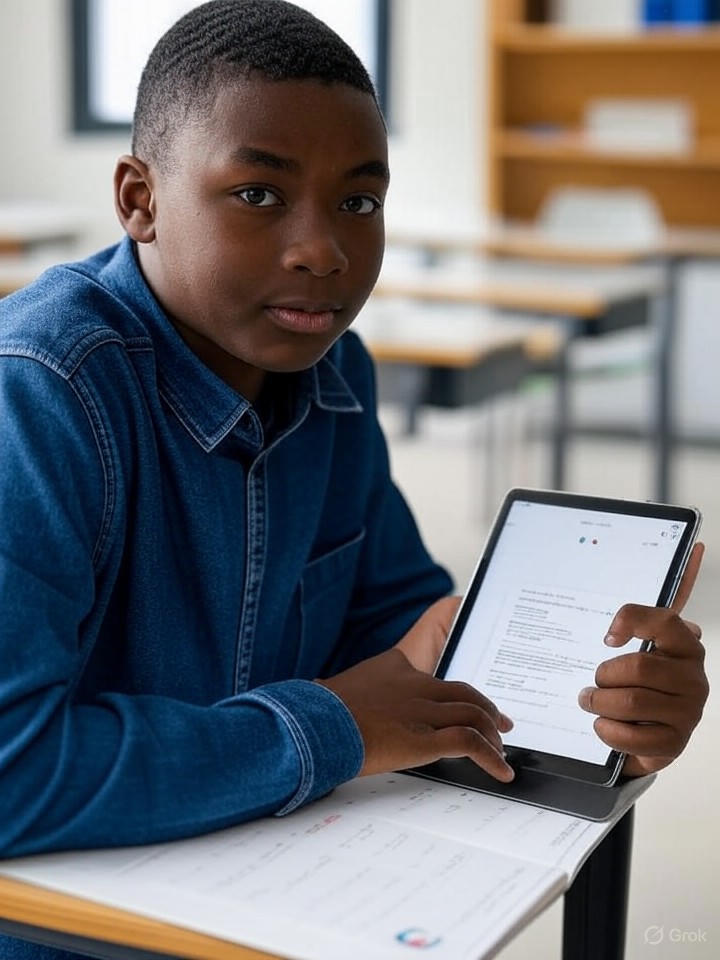Google has introduced a comprehensive suite of AI-powered tools within its Gemini app, specifically designed for students in Europe, the Middle East, and Africa (EMEA). This initiative, announced on the Google Blog, aims to enhance educational engagement by providing personalized learning experiences and interactive study aids. The new features, including Guided Learning, focus on breaking down complex topics into manageable steps, prioritizing comprehension over mere memorization.
The launch addresses significant educational disparities in EMEA, where access to quality resources can vary widely due to geographical and infrastructural challenges. As part of this effort, the tools allow students to create multimedia explanations, flashcards, and quizzes on demand, facilitating a more dynamic learning environment. This approach emphasizes democratizing education, a sentiment echoed on social media platforms where educators have praised the app’s ability to cater to diverse learning needs.
Enhancing Accessibility and Engagement
For students in regions with inconsistent internet connectivity, the Gemini app’s offline capabilities ensure that learning remains uninterrupted. Recent updates, detailed in Google’s education outreach blog, have further improved these functionalities. Educational experts note that this expansion builds on Gemini’s global framework. Features like visual responses, which overlay AI insights onto real-world objects through phone cameras, have been highlighted in various publications, including AppleMagazine. Such innovations promise to improve STEM education, where visual aids are critical.
Moreover, the introduction of free AI Pro subscriptions for verified students, renewed for 2025, offers advanced features such as Deep Research and Canvas. With 100GB of cloud storage included, this package presents a significant advantage for resource-limited institutions. The response on social media indicates a positive reception, with teachers noting how these tools transform passive study into interactive learning sessions, potentially reshaping classroom dynamics.
Integration with Google’s Broader Ecosystem
The Gemini app’s integration with Google Workspace for Education allows educators to assign AI-generated content directly to students. This includes NotebookLM overviews and custom “Gems” for specialized tutoring—features that debuted at Google I/O 2025 and were expanded in August. Observers suggest that this signals a shift towards AI-augmented curricula, where instant quizzes and adaptive tools can alleviate teacher workloads while enhancing student outcomes.
Despite the excitement, some critics raise concerns about the potential over-reliance on AI in educational environments, particularly regarding biases in generated content. These concerns have been voiced on social media, emphasizing the need for ethical AI usage in education. Google’s response involves implementing built-in content filters and youth onboarding processes to ensure age-appropriate interactions, which is essential in regions with varying regulatory frameworks, from Europe’s strict data privacy laws to evolving guidelines in Africa.
Looking ahead, this expansion in EMEA could set important precedents for the role of AI in education worldwide. Features like Gemini Live’s visual upgrades enable students to receive real-time guidance on practical tasks, such as identifying historical artifacts or solving physics problems visually. Users have shared on social media how these capabilities empower self-directed learning, particularly in underserved areas.
Ultimately, Google’s commitment to education technology, highlighted by the announcement of over 30 no-cost tools at ISTE 2025, positions the company as a leader in the edtech space. Industry insiders believe the true value lies in data-driven personalization, which has the potential to significantly improve student engagement and retention rates across diverse markets. As adoption continues to grow, further integrations are expected, blurring the lines between technology and traditional teaching methods.
